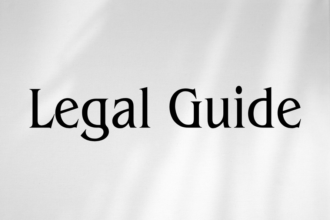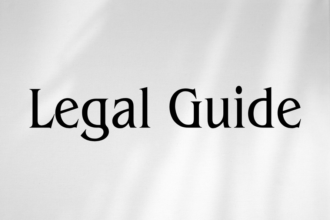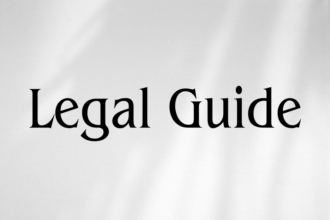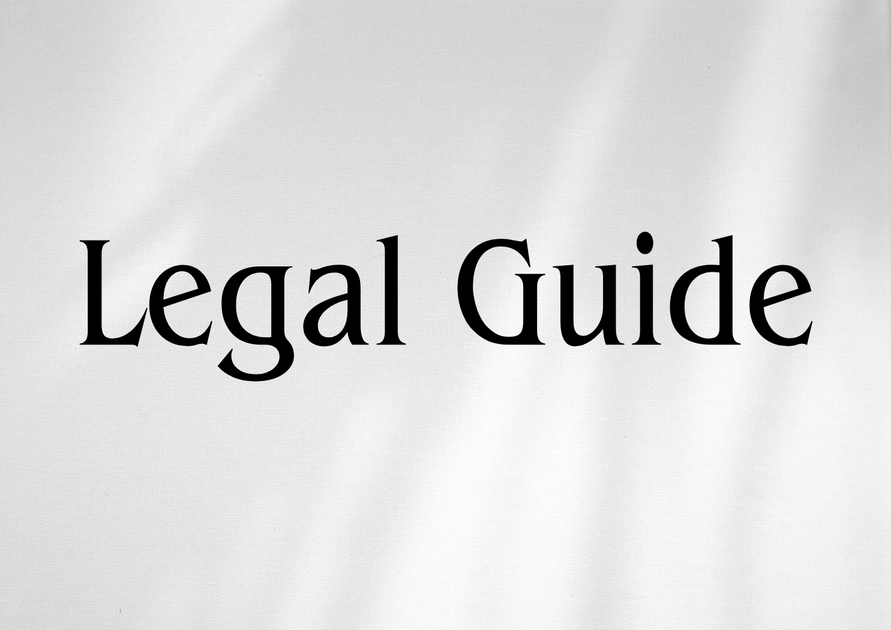Introduction: The Evolving Importance of the Emirates Maritime Arbitration Centre
In the face of intensifying global trade and the UAE’s drive to cement itself as a top maritime hub, the role of specialized legal institutions like the Emirates Maritime Arbitration Centre (EMAC) has become more critical than ever. With recent updates to UAE arbitration laws and a renewed emphasis on alternative dispute resolution mechanisms, understanding EMAC’s pivotal status is not just relevant—it is indispensable for maritime businesses, legal professionals, and executives seeking operational resilience and legal certainty.
The UAE’s maritime sector is thriving, propelled by strategic infrastructure, advanced ports, and an outwardly focused economic policy. However, complex commercial transactions also give rise to intricate disputes. EMAC serves as a bridge between traditional court litigation and agile, sector-specific resolution, ensuring disputes are managed professionally within internationally-recognized legal frameworks. This article delves into EMAC’s founding legislation, operational procedures, recent legal reforms, practical impact, and best compliance strategies for stakeholders navigating the Emirates’ dynamic maritime legal waters. For legal practitioners, business leaders, and HR managers, an understanding of EMAC is essential for staying at the forefront of UAE law 2025 updates and maintaining robust legal compliance.
Table of Contents
- EMAC Foundation and Legal Framework
- Governance, Jurisdiction, and Rules of Procedure
- Comparison: EMAC and the UAE New Arbitration Law (Federal Law No. 6 of 2018)
- Case Studies: EMAC in Action
- Practical Implications for Businesses and Stakeholders
- Risks of Non-Compliance and Compliance Strategies
- Conclusion and Forward Perspective
- Suggested Visuals and Tables
EMAC Foundation and Legal Framework
Establishment and Statutory Mandate
The Emirates Maritime Arbitration Centre was officially established by Decree No. 14 of 2016 issued by H.H. Sheikh Mohammed bin Rashid Al Maktoum, Ruler of Dubai and Vice President of the UAE, to provide an independent, specialized forum for maritime and shipping-related dispute resolution. EMAC’s legal identity and independence are further protected under the new Federal Arbitration Law (Federal Law No. 6 of 2018), positioning it as a globally recognized arbitral institution.
EMAC’s core mandate is clear: to administer arbitration and mediation proceedings in maritime, shipping, logistics, and allied disputes, ensuring efficiency, confidentiality, and adherence to international best practices. Its arbitral awards are enforceable under the UAE’s modernized legal environment, and it aligns with the 1958 New York Convention, to which the UAE is a signatory.
Key Objectives and Legal Significance
- Offering a specialized dispute resolution mechanism that meets the unique needs of the maritime sector.
- Supporting the UAE Vision 2030 and Dubai Maritime Sector Strategy by enhancing the Emirate’s profile as a dispute resolution hub.
- Reducing time and cost compared to traditional court litigation in maritime cases.
- Bolstering investor confidence and facilitating trade by providing legal predictability and expedited justice.
Recent regulatory updates—such as the amendments under Federal Law No. 6 of 2018 and Cabinet Resolution No. 57 of 2018 on arbitration rules—have reinforced EMAC’s role, ensuring its awards are not only robust in the UAE but also recognized in global forums.
Governance, Jurisdiction, and Rules of Procedure
EMAC’s Governance Structure and Jurisdiction
EMAC is administered by a diverse Board of Trustees, composed of prominent legal, maritime, and business figures. This ensures the institution is attuned to evolving industry needs while upholding rigid standards of impartiality and transparency.
The Centre’s jurisdiction covers:
- Disputes arising from shipbuilding, charter parties, marine insurance, logistics, port operations, and allied activities, provided the parties have contractually opted for EMAC rules or institutional arbitration.
- Cases involving international parties, solidifying Dubai’s reputation as a global maritime dispute resolution venue.
Procedural Rules and Noteworthy Features
EMAC’s Arbitration Rules, modeled after the United Nations Commission on International Trade Law (UNCITRAL) framework, reflect current best practices and are tailored for maritime complexities. Key procedures include:
- Appointment of Arbitrators: Parties may choose arbitrators from EMAC’s specialized maritime panel or, failing agreement, the Centre appoints suitable arbitrators with commercial expertise.
- Interim Relief: Parties can apply for interim measures, such as ship arrest orders or preservation of cargo.
- Expedited Proceedings: Provision for urgent disputes and simplified processes for lower-value claims.
- Confidentiality and Enforcement: All procedures and awards are strictly confidential. Awards are enforceable locally and internationally under the New York Convention and UAE law.
The procedural structure is designed to avoid the bureaucracies of traditional courts, focusing on swift, accessible justice for the maritime community.
Comparison: EMAC and the UAE New Arbitration Law (Federal Law No. 6 of 2018)
Table: Key Differences and Enhancements
| Feature | Pre-Federal Law No. 6 of 2018 | Post-Federal Law No. 6 of 2018/EMAC Integration |
|---|---|---|
| Legal Framework | Old Civil Procedure Law; Lack of maritime focus |
Dedicated, modern arbitration law; EMAC specialized maritime rules |
| Enforcement of Awards | Lengthy court ratification; Limited international recognition | Simplified, expedited enforcement; Internationally recognized (New York Convention) |
| Appointment of Arbitrators | No centralized panel; General commercial arbitrators |
Specialized maritime panel; Expert appointment by EMAC |
| Interim Measures | Limited, often unavailable | Explicitly permitted; Urgent ship/arrest/preservation orders allowed |
| Confidentiality | Not guaranteed | Explicitly embedded in EMAC proceedings |
| Appeal and Annulment | High risk of court intervention | Limited annulment grounds; Judicial deference to arbitral process |
Legal Commentary
The federal arbitration law’s modernization ensures that EMAC can provide world-class, binding dispute resolution without legacy delays or unpredictabilities. For compliance, businesses must ensure that arbitration clauses in shipping contracts expressly designate EMAC and reflect updated post-2018 legal language to guarantee enforceability and avoid costly procedural missteps.
Case Studies: EMAC in Action
Hypothetical Case Study 1: Shipbuilding Dispute
Scenario: An international shipbuilder and a UAE-based shipping company dispute the late delivery of a vessel and alleged construction defects.
Resolution through EMAC: The contract contains a well-drafted EMAC arbitration clause. Proceedings are commenced at EMAC. A three-member tribunal from the EMAC panel reviews technical evidence, appoints an independent marine surveyor, and issues an award within nine months. The losing party, headquartered abroad, complies after prompt recognition in their home jurisdiction, based on the New York Convention.
Consultancy Insights: Properly-worded contracts accelerate dispute resolution, minimize disruption, and promote cross-border enforceability. This demonstrates EMAC’s strategic value for international maritime contracts governed by UAE law or seat of arbitration.
Hypothetical Case Study 2: Maritime Insurance Claim
Scenario: A UAE port operator and a foreign insurer disagree over policy coverage for damage following a container mishap.
Resolution through EMAC: The parties opt for expedited arbitration due to the lower value and urgent operational need. The EMAC tribunal issues a final, binding award in just four months, vastly reducing legal expenditure compared to litigation.
Key Takeaway:
EMAC provides nimble, expert-driven adjudication, with awards that offer certainty and international enforceability—a distinct upgrade from older processes that were often slow, costly, or jurisdictionally uncertain.
Practical Implications for Businesses and Stakeholders
1. Contracting Best Practices
Contractual Clauses: All maritime, logistics, shipbuilding, and affiliated contracts should contain a robust and current EMAC arbitration clause, specifying the Emirates Maritime Arbitration Centre as the seat and institution and referencing the applicable rules.
Legal Insight: Post-2018, vague or outdated clauses risk unenforceability under the UAE’s new legal architecture.
2. Dispute Preparedness
- Pre-arbitration Steps: Maintain clear documents, correspondences, and technical records. Promptly instruct counsel with EMAC expertise in the event of a dispute.
- Early Resolution: Consider mediation (also available under EMAC) before escalating to full arbitration, potentially saving time and costs.
3. Strategic Advantages
- Cost Efficiency: EMAC’s scale and maritime focus produce materially lower arbitration expenses and a swifter process than court litigation or international arbitration in non-specialist forums.
- Risk Mitigation: Specialization makes outcomes more predictable, and processes such as expedited and emergency arbitration afford users significant commercial flexibility and legal protection.
4. Guidance for HR and Corporate Managers
- Ensure that HR, risk, and contracts personnel are briefed on EMAC’s framework and include dispute resolution training in annual compliance programs.
- Adopt a checklist (see below table suggestion) to verify adherence to EMAC-compliant procedural steps during contract negotiation and execution.
Risks of Non-Compliance and Compliance Strategies
Key Compliance Risks
- Improper or Outdated Arbitration Clauses: New Federal Law No. 6 of 2018 sets revised requirements for the validity of arbitration clauses. Failure to update means potential unenforceability and protracted litigation risk.
- Failure to Prepare Documentation: Incomplete or unorganized records may result in adverse outcomes or delays during proceedings.
- Ignoring Interim Relief Options: Failing to pursue urgent interim measures when necessary can jeopardize assets, evidence, or business continuity.
Compliance Checklist Table: Key Steps for EMAC Arbitration Readiness
| Compliance Step | Practical Guidance | Risk if Ignored |
|---|---|---|
| EMAC Arbitration Clause in Contracts | Review templates and bespoke contracts with legal counsel | Unenforceable dispute resolution procedures |
| Documentary Management | Retain and organize all transaction records | Inadequate evidence; lost claims |
| Early Dispute Notification | Set up internal escalation protocols | Missed deadlines; incomplete submissions |
| Mediation/Arbitration Training | Train relevant teams annually | Operational delays; increased legal spend |
| Post-Award Compliance | Map jurisdictions for enforcement | Delayed recovery of remedies |
Professional Recommendations
- Periodically review arbitration agreements to ensure compliance with evolving legal standards (especially after 2023–2025 updates).
- Establish a dedicated in-house or external contact familiar with EMAC’s framework to coordinate arbitration proceedings efficiently.
- Participate in EMAC events and professional development initiatives to remain updated on procedural and regulatory changes.
Conclusion and Forward Perspective
EMAC’s rise as a specialized maritime arbitration centre, underpinned by the UAE’s progressive Federal Law No. 6 of 2018, has elevated the Emirates to the upper echelon of global dispute resolution venues. For businesses and legal practitioners, EMAC presents a pragmatic, robust pathway to resolve complex maritime disputes with global enforceability, cost-effectiveness, and sector expertise. In light of continued legislative refinement—reflected in UAE Law 2025 updates and growing governmental support—an EMAC-centric compliance approach is an essential part of corporate legal strategy.
Looking ahead, the integration of digital processes, the increasing commoditization of maritime and logistics contracts, and the proliferation of cross-border claims will only heighten the necessity of up-to-date EMAC expertise. The legal and business community must embrace ongoing compliance, invest in dispute resolution training, and regularly update contract frameworks to maintain competitive advantage and legal certainty in the UAE’s dynamic economy.
Suggested Visuals and Tables
- Process Flow Diagram: Illustrate the typical EMAC arbitration process, from dispute initiation, mediator/arbitrator appointment, through to final award enforcement and post-award action.
- Compliance Checklist Table: (As included above) A practical, downloadable checklist for internal compliance teams.
- Penalty Comparison Chart: Visualize the differences in costs and timescales between EMAC arbitration, UAE court litigation, and international non-specialist arbitration.




